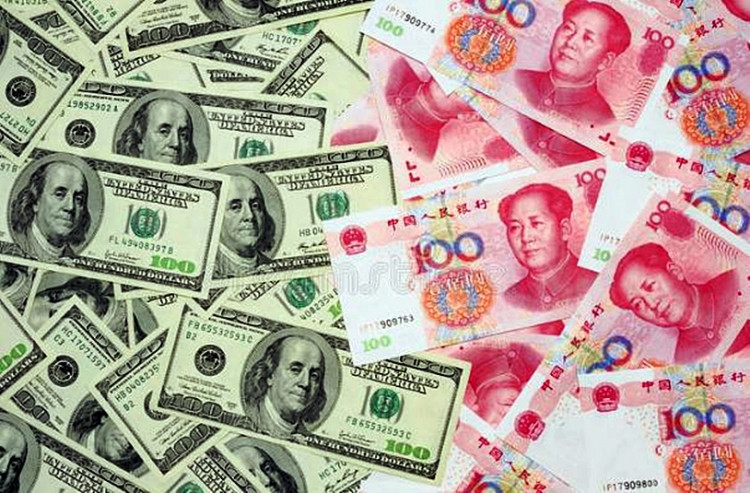We've been so focused on Trump's trade war that we forgot another -- but more damaging -- war has crept up on us: a currency war between China and the United States.
That war took front and center when president Donald Trump over the weekend ignorantly accused China and the European Union (EU) of "manipulating their currencies and interest rates lower." Trump's timing of his tweet was not by accident - it came on the same day (July 20) that the yuan plunged to its lowest level in a year, with scant evidence the People's Bank of China (PBOC), the central bank, intervening to stop the rot.
Disadvantageous exchange rates aren't the main danger in this nascent currency war, however. The real threat is this war will also engulf the whole range of financial instruments and other assets.
"The real risk is that we have broad-based unravelling of global trade and currency cooperation, and that is not going to be pretty," said Jens Nordvig, founder of Exante Data LLC, a data analytics firm.
He noted that Trump's recent rhetoric "is certainly shifting this from a trade war to a currency war."
This war will likely be enflamed this week if PBOC does nothing to stem the downward spiral of the yuan that reached a new low on July 20. The uninformed Trump, who acts based on gut instinct and not on facts, has already attacked both China and the European Union (EU) for keeping their currencies weak in order to allegedly gain an edge for their exporters.
Last Friday, PBOC made no move to stop the steady depreciation of the yuan against the U.S. dollar in an apparent move to help Chinese exporters better withstand ongoing U.S. tariff hikes. The yuan (RMB) skidded to a 12-month low of 6.8 to the dollar on Friday, 7.6 percent lower compared to mid-February. Financial analysts discounted trade tensions as the main factor, and instead said the drop was mostly caused by China's decelerating economic growth.
At the end of the trading day, however, the yuan reversed its early and stood at 6.7790 per dollar at 5:36 p.m. in Shanghai after falling as much as 0.5 percent to a new one-year low.
Whether the PBOC attempts to peg the yuan-dollar exchange rate near 6.80 to avoid further escalation is key, said Nordvig. He believes European Central Bank (ECB) president Mario Draghi might elect to enter the fray at the ECB's July 26 policy meeting after American attempts to talk the dollar down in January were slammed in Frankfurt.






